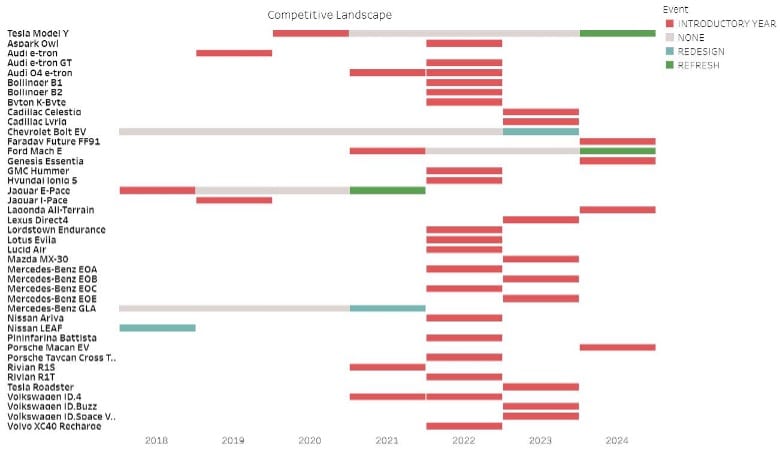As more electric vehicles enter the market; dealers will need to develop specific strategies for both sales and service.
EVs seem to occupy the lion’s share of media exposure and general automotive conversations these days. The electric vehicle market has come a long way since the early days of the first-generation Nissan LEAF, Smart fortwo, and Mitsubishi i-MiEV–all of which were small cars, with limited range.
Back then, the range was often less than 160 km and many of these EVs had scant cargo space due to the weight and size of the batteries.
Since Tesla started manufacturing the Model S in 2012, and a shift began in consumer expectations and acceptance, due to the car’s daring design, longer range, and performance modes.
Today, most OEMs are looking at an electrified future. Some OEMs boast multiple EV options across various segments and some major brands have announced plans for full electrification within a decade or so.

This will mean noticeable changes for both new and used vehicle dealers, as the volume of used EVs will increase significantly. This will be particularly important for dealers in regions that are pushing for widespread EV adoption sooner rather than later.
For example, in Quebec, the Premier announced late in 2020 that the Province would ban the sale of combustion engine vehicles by 2035, and BC has committed to do the same by 2040.
Future EV growth
Currently, there are 19 all-electric (BEV) and thirty-four Plug-in Hybrid Electric (PHEV) models in production for the North American market. OEMs across the industry have plans for or announced a slew of new EV models to look forward to.
Recent announcements range from performance-oriented vehicles to crossovers, to full-size trucks, to heavy-duty trucks and delivery vans. There will be options for mainstream, luxury, and fleet/commercial buyers.
Much of the growth is in the consumer retail space, which is what most of us are more aware of, due to awareness campaigns and social media. However, the commercial sector is also actively expanding in the form of EV delivery vans and medium/heavy-duty trucks.
It is interesting to see and follow the development of some newer names in the EV market, such as Canoo, Rivian, Bollinger and Nikola Motors. But the established players, such as BMW, Ford, GM, Volvo and more, are making aggressive investments in EVs with substantial new product announcements and launches for 2021 and beyond.
Below is just a sampling of what is currently in the market and what is coming soon.

How should dealers (new and used) be getting prepared?
For new vehicle dealers, if you aren’t already carrying at least one electrified model, then you likely will be soon.
As mentioned, most OEMs have plans for electrified or alternative fuel models currently in the pipeline. It is important to get your service, parts, and sales staff trained and get your facilities prepared to accommodate this change in inventory type.
The Canadian Black Book continues to work with OEMs and other industry stakeholders on customized studies to inform the transition to EV.
For used vehicle dealers, this push toward electrification from OEMs and governments will require them to get ready for larger used EV inventories, as these vehicles gain a larger market share soon.
We all know that if you are not ready to accept change or something new, it is certain that your competitors will.
This means learning how to equip your dealership with the necessary charging equipment, training staff, having educational materials for customers, and learning about upcoming models that will soon become used inventory. It is critical to be able to educate consumers about the positives of EVs, such as low maintenance costs, battery warranties, and improved range compared to early generation models.
What matters to a consumer when purchasing a new or used EV?
So, what are consumers really looking for or worried about when they are considering the purchase of a new or used electric vehicle?
‘Range anxiety’, a widely discussed area of contention between EVs and consumers, is certainly one of the biggest factors.
Reservations about range are being eased today, by longer-range models that are not only exclusive to Tesla. It is now the norm for EVs to have a range exceeding 320 kilometres, with many exceeding 400 km.
Currently, 16 of the 19 BEV models already on the market are available with more than a 320-kilometre range. To put this into perspective, a decade ago the Nissan LEAF was introduced as the first modern BEV, with a 120-kilometre range.
The cost is another important factor that can inhibit the widespread adoption of EVs. Organic demand may be relatively saturated; however, governments’ mandates are directing OEMs to build EVs, while monetary/tax incentives entice consumers to buy.
In an EV, it is the battery cost that typically accounts for the high sticker price. However, over the past decade, the cost of lithium-ion batteries has dropped significantly. Unfortunately, data suggest that the reduced battery costs are not fully passed on to consumers.
To encourage widespread adoption of EVs, the total cost of ownership disparity between an EV and a traditional ICE vehicle needs to be minimized through lower MSRPs, consumer finance incentives, and higher fuel prices.
So what?
Well, in short…EVs are coming! OEMs are learning from their vast ICE vehicle experience and beginning to put more focus on SUV and light truck options. After all, we know that in Canada, these models are where the majority of demand lies.
So time will tell. When these SUV/Truck units become more readily available, will they offer consumers the options, style, size and range that Canadians want?
We expect that the answer will be ‘yes’, but we certainly don’t expect that to be an instant shift. But, as we said, EVs are coming and it is not a matter of ‘if’, rather a matter of ‘when’.
David Robins is Principal Automotive Analyst and Head of Canadian Vehicle Valuations at Canadian Black Book.



